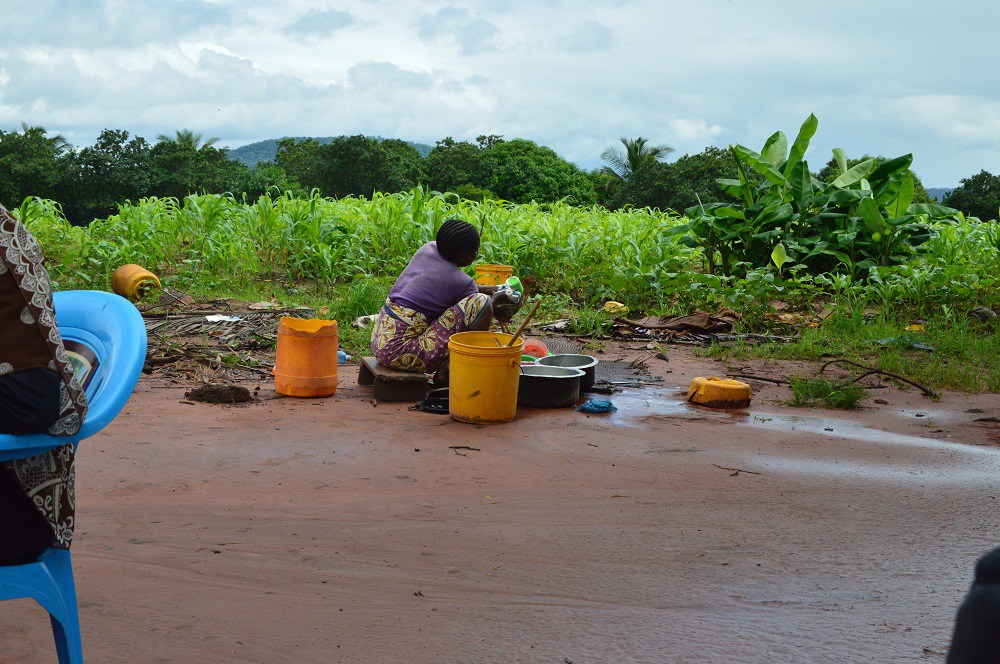In November 2017, I was invited to a meeting organised by KEWASNET, a coalition which is a member of End Water Poverty, to discuss Kenya’s WASH CSO advocacy strategy based on the 2016 Kenya Water Act.
Kenyan CSOs were excited about this news; at the same time they were cautious about some aspects of it. This is the situation with most laws written through consultative processes when many interest groups lobby for their constituents.
Wanting to learn more, I decided to read about Kenya’s new law. Upon going through it, I also got excited and cautions at the same time. Here is the thing; Kenyans have right to water!
As an activist who want to see human rights to water and sanitation as the standard for the provision of these services, this is music to my ears. The new law reconfirms the Kenyan’s right to water and sanitation. The law states:
“Every Kenyan has right to clean and safe water in adequate quantities and to reasonable standards of sanitation as stipulated in Article 43 of the constitution”.
KEWASNET and its members can use this law to hold the Kenyan Government accountable if they fail to provide safe water and sanitation services to any community within the country.
CSOs in Kenya can start by demanding a compressive plan and budget from the central government on how they are going to provide WASH to the bottom 7% of Kenyans, who are drinking surface water. This is an aberration of the new law and there is a case to make to speed access to these left behind communities.

Domestic water use comes first!
The law puts the use of water for domestic purposes before any other usages (agriculture, industrial, transport or constructions). This is a very progressive law, which gives a boost to WASH. Kenyan CSOs can use this law to ensure that in times of draught, water is not being diverted for other uses besides domestic purposes. With growing concern of climate change, countries such as Kenya are prone to draught. Even without the threat of a draught, north eastern provinces such as Wagir County are already experiencing seasonal draughts. This could get worse in future; the new law will be a mitigating factor for protecting such communities.
“46. (l) Whenever it is shown to the satisfaction of the Authority that, owing to natural changes, increased demand or other cause, the use of water under a permit, or the method or point of diversion or other manner in which the water is so used causes- (a) inequity; (b) a deterioration in the quality of water, (c) a shortage of water for domestic purposes; or in case of inter-basin water transfers, should have priority. (d) a shortage of water for any other purpose which in the opinion of the Authority in case of inter-basin water transfers, should have priority; the Authority may vary the permit so as to alter the discharge or quality of water or any other aspect of water use authorised by the permit, or to alter the method or point of diversion or other specifications, terms or conditions of the permit.”
A risk of this law is that it allows water resources to be controlled by private individuals or companies through the acquisition of water permits. The most typical companies who buy these water permits are mining companies, horticultural companies, construction companies, water bottling companies etc.
This is where CSOs and communities have to careful measures within the law. Water permit holders could deny communities access to water by fencing off their properties. The companies can employ tactics to delay the altering of their permits to cater for community access.
Devolution
The questions of devolution attracted a lot of excitement and caution. Although it is quite a novelty, there are grey areas in terms of financing and building strong accountability processes to prevent power grab. In 2013, Kenya ushered in devolution from the government to the county. This new dawn brought to reality a new political and governance dispensation as envisaged by the 2010 Kenyan Constitution. The unveiling of devolved governance, also saw the transfer of WASH service provision to the county Governments. However, the failure of the national Government to successfully lead a quick and decisive enactment of a new water act had left the sector littered with confusion. This could be attributed to entrenched self-interests amongst various players in the sector. Regardless of this, there have been multiple efforts to drive a process to deliver an act that will honour the provisions of the 2010 constitution for an effective service delivery to the people of Kenya.
Talking to a Sareen Malik (Acting ANEW Coordinator), this is her observation:
“The whole transition into a devolved system of governance has facilitated a seismic shift in thinking about the sector and the approach to planning and engagement. Without a doubt, the new system requires huge amounts of resources and political will at both the national and county level to set up institutions and develop policies responsive to the needs of all Kenyans, especially the marginalised and hard to reach communities.”
Sareen then states her concerns about the devolution in Kenya:
“Counties are tempted to look at themselves as independent entities entitled to a monopoly of resources (including water resources) held within their borders; county governments are tempted to look at water as a revenue stream to support other county services; and water assets that were developed over time using public resources exposed to the risk of being monopolised by counties in which they are based. This could adversely affect equity and inclusion”.
This meeting was organised three days after the swearing in of President Uhuru Kenyatta, after a tense election period. This goes to show the commitments of WASH CSOs and their reliance in working under tough conditions.
For more information on Kenya’s WASH access, please see the available data from the 2017 Joint Monitoring Programme Report.